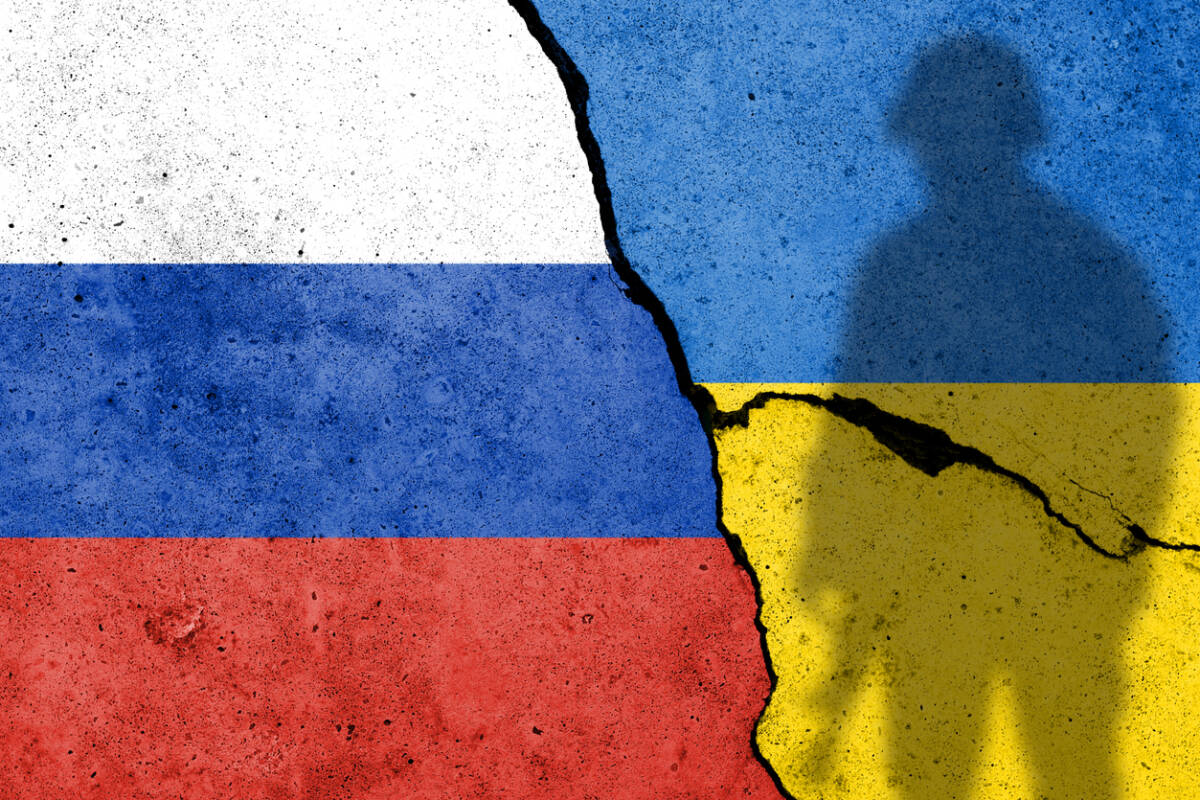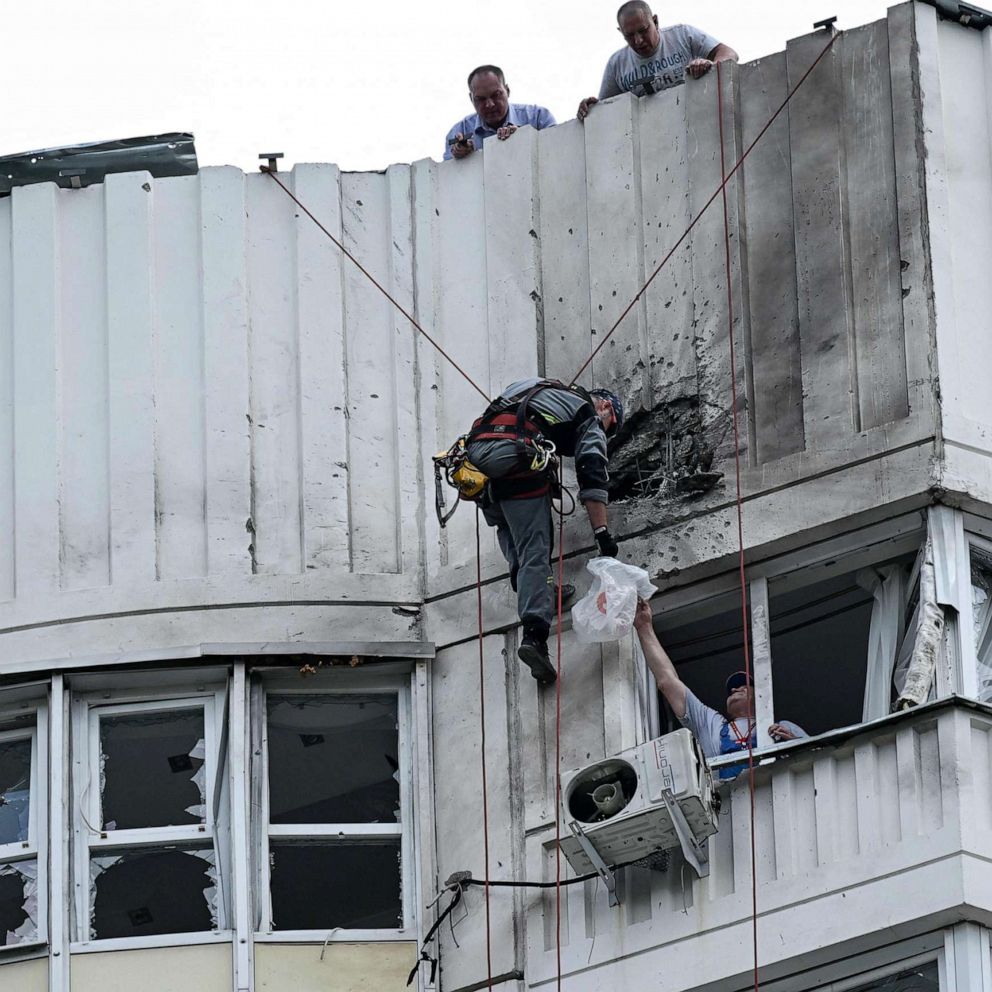Russia Accuses Ukraine of ‘Provocative’ Drone Attacks in Moscow: Tensions Escalate Amidst Allegations.

Russia Accuses Ukraine of ‘Provocative’ Drone Attacks in Moscow: Tensions Escalate Amidst Allegations.
Tensions between Russia and Ukraine have escalated once again as Russia accuses its neighboring country of launching drone attacks in Moscow. The alleged incidents have raised concerns about regional stability and added strain to an already fragile relationship between the two nations.

The accusations come amidst an ongoing dispute over territorial sovereignty in Eastern Europe. For years, Russia and Ukraine have been embroiled in a bitter struggle, especially concerning the Crimean peninsula and the Donbas region. The recent drone attacks in Moscow have added fuel to the fire, intensifying the longstanding conflict.
According to Russian authorities, the drone attacks occurred in several locations within Moscow’s metropolitan area over the past week. The drones, which were reportedly equipped with sophisticated technology, penetrated restricted airspace and conducted surveillance on sensitive sites in the Russian capital. The Kremlin alleges that these drones were controlled by Ukrainian forces and view them as provocative actions aimed at escalating the conflict.
The Russian Ministry of Defense presented purported evidence, including drone fragments and surveillance footage, which they claim implicates Ukraine in the attacks. However, Ukraine has swiftly denied any involvement in the incidents, labeling the accusations as baseless and pointing fingers back at Russia for using them as a pretext for further aggression.

The situation has heightened concerns among the international community, with leaders from various nations urging restraint and calling for a peaceful resolution to the dispute. The United Nations and other diplomatic channels have been active in attempting to mediate between the two nations to prevent further escalation and loss of innocent lives.
In response to the allegations, Ukrainian President [Ukrainian President’s Name] addressed the nation, emphasizing Ukraine’s commitment to peace and stability in the region. He stated, “We condemn any act of violence or aggression against our neighbors. Ukraine seeks peaceful coexistence and is willing to engage in dialogue to find a resolution to our disputes.”
Despite Ukraine’s assurances, Russia remains skeptical and is mobilizing its military forces along the border with Ukraine. This move has added to the already heightened state of alert in the region and raised concerns about a potential large-scale military confrontation.
/cloudfront-us-east-1.images.arcpublishing.com/tgam/W56ERTRU6VMTLCWHUREVMCMIUQ.jpg)
The international community is closely monitoring the situation, and some countries have imposed sanctions against Russia in response to its actions in the region. These measures aim to exert economic pressure on Russia and discourage further aggression.
Despite the ongoing tensions and mutual accusations, there have been some calls for de-escalation from both within Russia and Ukraine. Civil society groups and peace activists in both countries have been vocal in urging their respective governments to step back from the brink of conflict and find a peaceful resolution.
In addition to diplomatic efforts, some experts believe that engaging in confidence-building measures could help reduce tensions and build trust between the two nations. These measures could include increased communication and transparency, exchanging information about military exercises and deployments, and initiating joint projects on issues of common interest, such as environmental protection and disaster response.
However, implementing such measures is not without challenges, as decades of animosity and mistrust cannot be easily overcome. Moreover, any de-escalation efforts must be reciprocated and supported by both sides to be effective.
The situation in Moscow also highlights the evolving role of drones in modern conflicts. Drones, once primarily used for reconnaissance and surveillance, have become increasingly weaponized and capable of carrying out targeted strikes. This technology offers both advantages and risks, as it allows military forces to operate in contested areas without risking personnel on the ground. Still, it also raises concerns about the potential for unintended escalation and civilian casualties.
International regulations on the use of drones in conflict zones are still evolving, and the situation in Moscow serves as a stark reminder of the need for clear guidelines to prevent their misuse. The international community must work together to establish norms and protocols governing drone usage to minimize harm and prevent their exploitation for aggressive purposes.
As the situation unfolds, it is essential for all nations to respect the principles of international law and sovereignty. Any escalation of the conflict beyond rhetoric and military posturing could have devastating consequences not only for Russia and Ukraine but for the entire region.
In response to the escalating tensions, the United Nations Security Council has convened an emergency session to address the crisis. There, representatives from various countries have expressed concern and called for restraint. The international community has reiterated the need for dialogue and has offered support for mediation efforts to facilitate negotiations between Russia and Ukraine.
The European Union (EU) and NATO have also voiced their support for Ukraine and have expressed solidarity with its sovereignty. While they have not ruled out the possibility of further sanctions against Russia, their primary focus remains on diplomatic efforts to prevent further escalation.
As the crisis enters a critical phase, world leaders are closely monitoring the situation, and backdoor diplomacy is in full swing. High-level talks between Russia and Ukraine are expected to take place in the coming days, with mediators from various countries facilitating the dialogue. These talks will be crucial in determining whether a peaceful resolution can be achieved or if the situation will devolve into a larger conflict.
However, not all nations are supportive of such sanctions, and there are divisions among global powers regarding the appropriate response. Some argue that diplomacy should take precedence, emphasizing the need for dialogue and negotiations to avoid further escalation.
In conclusion, the accusation of drone attacks in Moscow by Russia against Ukraine has significantly escalated tensions in an already volatile region. Both sides must exercise restraint, prioritize diplomacy, and engage in meaningful dialogue to avoid further escalation and find a peaceful resolution. The international community plays a vital role in supporting mediation efforts and encouraging a de-escalation of tensions.
The use of drones in such attacks highlights the evolving nature of modern conflicts and underscores the urgent need for international regulations to govern their usage responsibly. As the world watches closely, hoping for a peaceful outcome, it is crucial for all parties involved to step back from aggression and seek common ground for the sake of regional stability and global peace. Only through sincere and constructive dialogue can a path towards lasting peace be found for Russia, Ukraine, and the entire international community.




